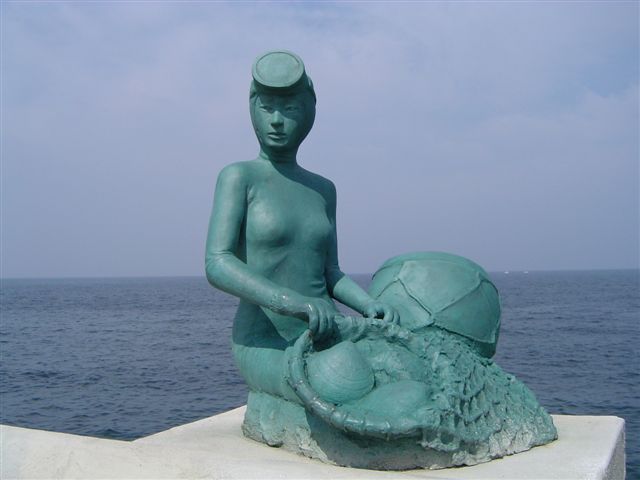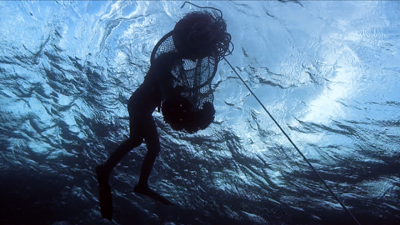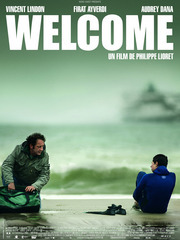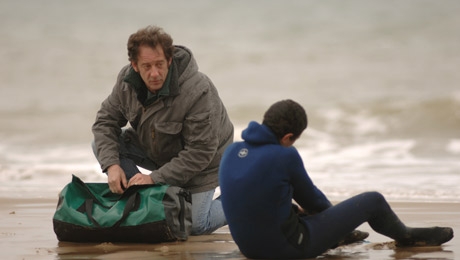
Water covers 71% of the earth's surface. At birth, a human baby is nearly 78% water. By the time a man reaches adulthood, water accounts for approximately 60% of his body. With today's technology, we often take filming underwater for granted.
Whether looking at a pipe gushing oil from the bottom of the Gulf of Mexico or a group of athletes swimming laps in a pool; whether watching deep sea footage of bizarre sea creatures or the slow grace of a pod of whales; something about underwater photography captures my attention so easily that I often find it hard to believe.
Women often speak of retaining water. Not surprisingly, when we think about many of the words and phrases we use to describe our daily lives, images of water are found everywhere.
- When seen under a microscope, sperm appear to be swimming toward their destination.
- The first sign that an embryo which has been resting in a fluid environment is about to exit the body occurs when a female's bag of water breaks and amniotic fluid spills out.
- We shower someone with love.
- Baptism, which involves a water ritual, is often seen as a moment of purification.
- When seeking a sense of rejuvenation, some people will try to wash their cares away.
- Often, when bathed in attention, our spirits feel buoyed.
- News floods the airwaves.
- Many of us purchase sea salt for seasoning.
- A personal failure can indicate that someone is all washed up.
- A drunk may be described as soaked in gin.
- Someone who has lost his sense of direction may be described as feeling all at sea, or sinking into depression.
- An angry person might unleash torrents of vituperation.
Whether filmmakers look to water as an environment in which to stage Mega Shark versus Giant Octopus, hide The Beast From 20,000 Fathoms, find The Water Horse or create another sequel to Jaws, the ocean is a constant battleground for survival. Whether water allows filmmakers to look deep into The Abyss, to Run Silent, Run Deep, or spend time with Kevin Kostner in Waterworld, water offers a constant source of wonder.
From Kon-Tiki and The Poseidon Adventure, to The Last Voyage and Raise The Titanic; from Lifeboat and The Perfect Storm to Planet Earth and The Day After Tomorrow, water is above, below, around, and inside us. Victory at Sea is never a sure thing because water is a magnificent enabler and destroyer -- a dramatic force to be reckoned with.
* * * * * * * * *
What happens when a profession becomes obsolete? Or when no one wishes to carry on a tradition? Just as farm families have watched their children abandon the homestead for life in the city, a tiny community of skin divers in the Korean Strait constitutes the last generation that will earn its living underwater.

The Haenyo statue on Jeju Island
In an enchanting 19-minute short from South Korea, filmmaker Liz Chae documents the lifestyle of the Haenyos of Jeju Island. For nearly 2000 years, a tradition of diving for shellfish helped the Haenyos fend off starvation and survive wars which took away their men. Generation upon generation of mothers taught their daughters how to dive for oysters, abalone, and other food sources found on the coastal ocean floor.

Although Korea has traditionally been a male-dominated society, the location of Jeju in the Strait of Korea meant that many of its men were either killed during wars or taken captive. The Last Mermaids documents the history of the Haenyos (including one very spry 85-year-old), who routinely hold their breath for three minutes as they dive to a depth of 45 feet.
Rather than use scuba gear which could increase their productivity, the women interviewed in the film would prefer that their daughters (who now have access to higher education) not spend the rest of their lives in the water.
The Last Mermaids won the gold medal at the Student Academy Awards. Because the filmmaker and her mother were constantly bickering while on Jeju Island, The Last Mermaids ran into some curious production problems (read the fascinating back story about how the Haenyos finally doused the flames of a family feud). To get a sample of Dae In Kim's beautiful underwater cinematography and Joel Douek's magical score, click here to watch the film's trailer.
* * * * * * * * * * * *
Måns Herngren's watery comedy, The Swimsuit Issue, takes its inspiration from films like 1997's The Full Monty and 2003's Calendar Girls. The big difference here is that most of its characters have jobs. No one is trying to raise money for a charitable cause.
A former journalist (currently unemployed) who quit his job in a huff after a female editor demanded that he rewrite an article to reflect her views, Fredrik is facing a crisis on the home front. His former wife -- who makes more money than him -- has been offered a job in London. In order to get Fredrik to let their daughter stay with him while she is gone, his ex-wife has agreed to subsidize the cost of the arrangement.
Meanwhile, Fredrik and his male friends are trying to find a new way to remain viable as a team. Two decades ago, they came close to winning one of Sweden's floorball competitions. Now in their 40s, some of the men have gotten married or turned flabby. The latest insult is being told that they have to relinquish their playing time because of a gym policy that favors children, women, and the disabled.
Prior to his wedding, when the team threw a drag bachelor party for Larry, they had no idea that the video that captured their shenanigans might lead to an entirely new goal in life. The footage -- which shows Larry in a wedding dress (along with his friends in red women's swimsuits) pretending to perform as a synchronized swimming team -- proves to be the high point of Larry's wedding celebration. One of the guests even offers big money for the team to perform at one of her parties.

However, minus the drag element, their act falls flat on its face. When Fredrik's 17-year-old daughter takes her father to task for thinking that a bunch of middle-aged, out-of-shape men could compete in Berlin as a synchronized swim team, she knows what she's talking about. Sara is, after all, one of the budding talents on an all-girls synchronized swim team (a sport that has been strictly seen as a woman's event for decades).
When Fredrik learns that synchronized swimming was originally a men's event in competitions, his macho need to win kicks into gear. Convincing his teammates that they should try to compete in the upcoming World Cup games in Berlin, his road to glory is filled with unexpected challenges:
- Some of his friends can barely float, much less hold their breath underwater for 30 seconds.
- Borje is noticeably pudgy and slower than the other swimmers.
- Viktor, who insists that he is not homophobic, harbors a secret fear of such unmacho things as pedicures. When a late addition to the team performs a screamingly flamboyant audition, Viktor expresses grave concerns that Jarmo might be, you know, um... only to hear his teammates reply that yes, indeed, Jarmo is... Finnish!
- The team doesn't have enough men to meet the requirements for the Berlin contest.
- Fredrik has to find a pool where they can practice (some have tried to use the mechanical dollies in an auto repair shop where one of Fredrik's friends is employed).
- Last but not least, they are in desperate need of a coach.
Co-written by Måns Herngren and Brian Cordray, The Swimsuit Issue follows a group whose athletic dream is essentially rescued by a teenage girl with far more maturity than all of her father's male friends put together. Sara's ability to whip the team into shape and, at the last minute, rescue her father from his macho stupidity is enhanced by lots of good-natured teasing and some appealing underwater photography. However, be warned that Swedish is not the easiest language to listen to while trying to read subtitles. Here's the trailer:
* * * * * * * * * * * *
Far more poignant -- and not the slightest bit funny -- is Philippe Lioret's Welcome. Set in the French port of Calais, Welcome puts a human face on the plight of Arab refugees struggling to find a future.
The protagonist is a 17-year-old Iraqi Kurd who is trying to get to London so he can be with his girlfriend, Mina. When his attempt to be smuggled into England in a truck along with fellow refugees Zoran and Koban fails, Bilal comes up with an alternate plan: he'll swim across the English Channel for the sake of love.
Bilal soon catches the attention of Simon, a lifeguard at a community pool who agrees to teach him how to swim. When Simon learns about Bilal's plan he tries to discourage the young man, stressing the physical challenges he would face in the water. But as a friendship develops between the two, Simon decides to help the boy in any way he can.

Poster art for Welcome
Some of his concern is spurred by his ex-wife's comments when another refugee is refused admission to a local supermarket. After Marion asks Simon why he doesn't do something about the situation, he decides to go out on a limb to help Bilal, even though doing so will get him in trouble with local police and immigration authorities. Underlying his decision is the sad realization that, whereas Bilal is willing to risk swimming the English Channel to be with his girlfriend, Simon can barely bring himself to cross the street to be with his wife, a teacher and community activist who is also a volunteer at an outdoor soup kitchen for the homeless.
Meanwhile, in London, Mina's father has decided to marry her off to a wealthy restaurateur. Although Bilal has been in touch with Mina's brother, Mirko, by phone -- and Mina even manages to reach Bilal on Simon's cell phone -- the chances of love triumphing are slim indeed.
Because French law allows authorities to detain people who are caught helping illegal immigrants, Simon soon ends up in trouble with the law. As the filmmaker explains:
"Ten years ago, when all these young immigrants began arriving in the north of France, they came from Kosovo. The Calaisiens today still call the illegal immigrants Kosovars except that there's not a Kosovar among them. They've gone back to Kosovo because, at last, there's peace. It's their country, it's their culture, their families, their roots, and so they have returned home and everything's fine! The day when there is no longer a Taliban regime in Afghanistan, the Afghans will return home, too, and the problem will be solved.
All the reporting we see on television is slanted because, whenever a television camera is present, everything takes place so politely. But when there aren't TV cameras, what happens isn't polite. Out come the tear gas and the night sticks, the humiliation and incessant, incessant persecution.
While in Calais, I met a 17-year-old boy who later left for England to join his girlfriend. He was the inspiration for Bilal. The humanitarian volunteers who worked there told me that there had been countless attempts by immigrants to swim across the channel. Most of them are returned to the French coast by the currents (they are usually found in an extremely weak condition, but alive). The volunteers also told me a story about a young man who had left one day to make an attempt and no one heard any news. He never telephoned to say that he made it, so they feared the worst."

"I drew on all of this to tell my story. I didn't relate anything in the film that doesn't exist. And that's the worst part: I wish it was fiction, but it's all true. It's been happening for a long time -- young people forced to swim across the sea or finish their journey by jumping off a boat (as happens every day in the Adriatic, every day at Gibraltar)."
Although much of Welcome focuses on Bilal's preparations to swim the English Channel, his actual journey -- and its unfortunate resolution -- will leave a huge lump in your throat. Lioret's film tells a powerful story which, as the filmmaker notes, is all the more tragic because it is so true. Here's the trailer:
To read more of George Heymont go to My Cultural Landscape
